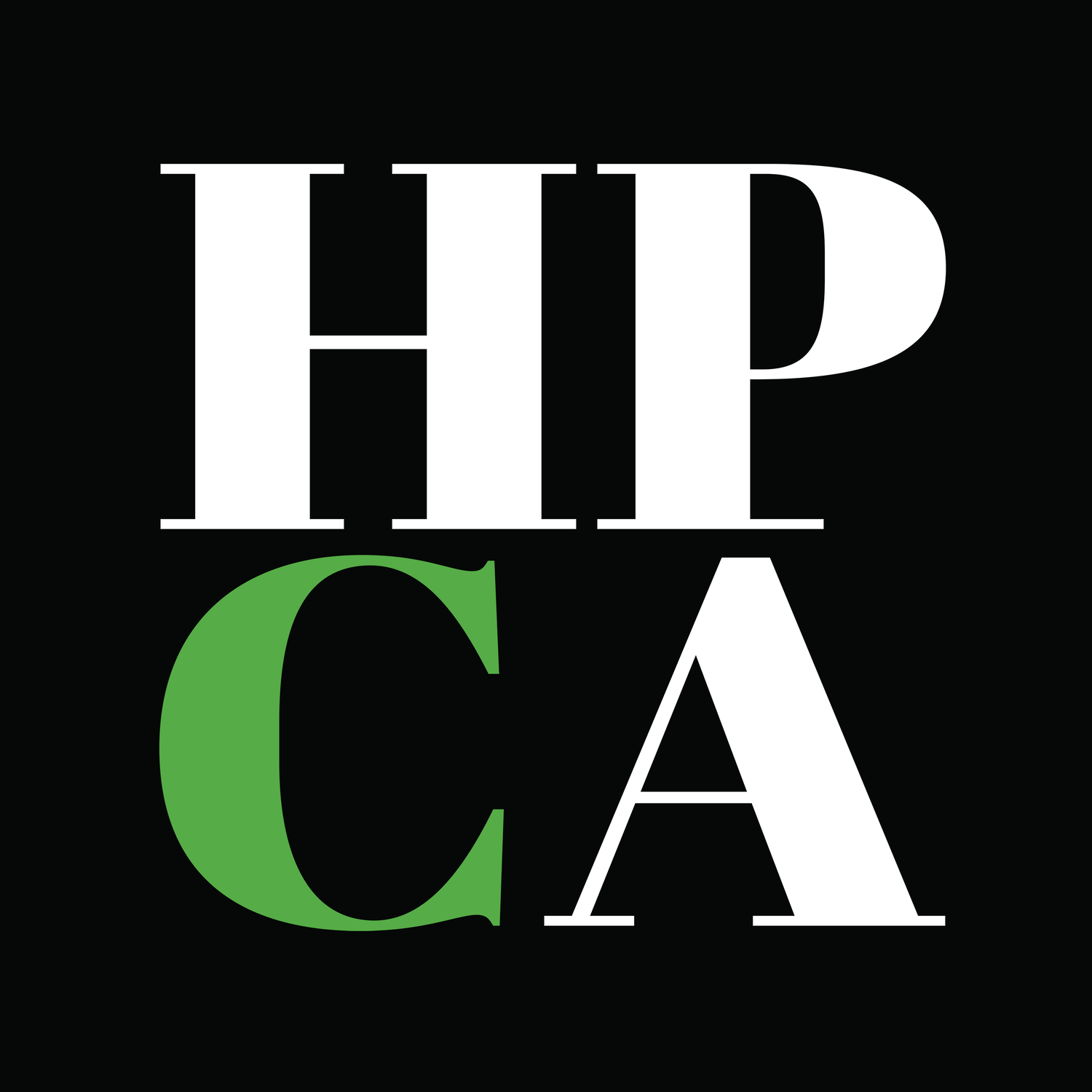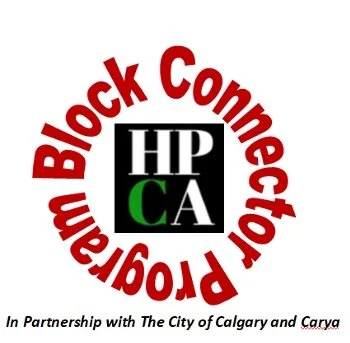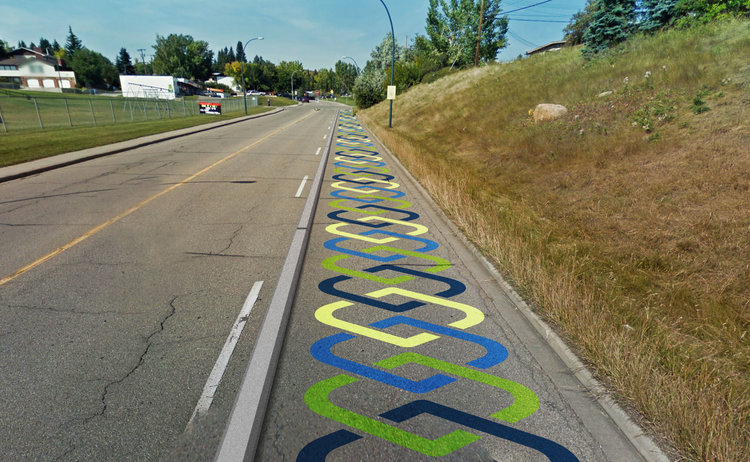You may have noticed information in last month’s newsletter about our new Block Connector Program…
Message from the president
Community Affections: Letters to Uplift Older Adults
Covid-19 Update From HPCA – May
Developments with the COVID-19 coronavirus are happening daily in Calgary, in other parts of Alberta and Canada. The information below was gathered from reliable public health sources at the time of our newsletter submission deadline. Alberta Health has now created their own webpage dedicated to distributing accurate information about the virus. You can also get reliable information from CBC TV or radio, or CTV TV, or similar mainstream media. Unfortunately, there have been multiple instances of inaccurate and potentially dangerous advice and information shared on various social media platforms and other sites. We urge you NOT to rely on information unless it is provided by or confirmed by Health Canada’s website, Alberta Health’s website, or by multiple mainstream media outlets.
What’s the difference between isolation and quarantine?
Isolation and quarantine are different terms. Isolation applies when someone is sick and is being kept apart from others to prevent the spread of an infectious disease. Quarantine applies to separation and restrictions on movements of people who are not currently sick but may have been exposed to an infectious disease. Those people are in quarantine while they watch for symptoms, or to prevent their exposure to others who are sick.
What’s the difference between social distancing and physical distancing?
Social distancing and physical distancing both refer to staying physically apart from others. This includes a wide variety of separation strategies such as staying 2 metres apart from non-household members when you are outside your home, working from home instead of at an office, and limiting the number of people allowed to gather in any one space. Many health organizations are using the term “physical” distancing instead of “social” distancing because we all still need to remain socially connected, even though we need to be physically distant for now.
What you can do to try to protect yourself from getting sick with COVID-19?
Stay home. Public health experts have advised everyone to stay home as much as possible and to work from home if you can. That means we all need to limit trips outside the house to the fewest possible essential trips to get groceries and other necessary supplies for our homes. The fewer trips we make outside our home, the fewer chances the virus has to spread to others.
Maintain your distance. We have all been advised to do our best to stay at least 2 metres away from others when we are shopping for groceries or going for walks to limit the chance the virus has of spreading from one person to another. You have likely seen the measures taken by grocery stores and other retail locations, such as sanitizing carts, installing plexiglass screens and markings on the floors, to try to limit close contact between customers, and between customers and staff. These are designed to protect both you and the staff at the store. We all also have our own role to play to respect these new rules both at the stores as well as on the sidewalks & pathways when we are out for a walk. In addition, most Canadians are now back from travel outside Canada, but for those who have newly returned to Alberta, they are now legally required to quarantine at home for 14 days while they watch for symptoms of the virus. That means they cannot do their own grocery shopping and cannot walk their dogs in a public park.
Wash your hands. The other main piece of advice public health experts have given is to ensure we are all washing our hands for at least 20 seconds to wash off any traces of the virus we may have picked up. We should be washing our hands every time after returning from being outside the home, after we use the washroom, before we eat, and after we blow our noses. Here is a YouTube video that shows a health care worker, using paint as a visual to show how well you need to spread the soap on your hands, to completely clean them (make sure you use soap to wash your hands like this person uses the paint).
What should you do if you get sick?
You are now legally required to stay home for at least 10 days if you are showing any symptoms that could be due to COVID-19 unless these symptoms are a result of a pre-existing condition. The symptoms that require you to stay home are fever, cough, shortness of breath, runny nose, or sore throat. If you develop any of these symptoms (and they aren’t due to a pre-existing condition like allergies or COPD), you need to complete the online assessment tool before you can access a COVID-19 testing location. The assessment tool can be found here.
What is HPCA doing during the COVID-19 pandemic?
The Highland Park Community Association Board is following the instructions of Alberta Health, the Province of Alberta, and the City of Calgary. As such, our hall is closed to all programs except Next which is offering childcare to families of essential workers in our main hall basement, and the Good Food Box, which continues to run on the original schedule with new physical distancing and cleaning measures in place. We have begun using video-conferencing for Board meetings. We have installed hand sanitizer dispensers in key locations in our hall, and have cancelled or postponed some of our events (see the Upcoming Events list in this newsletter), and we will continue to evaluate whether or how our planned community events can proceed later this year. We have created a COVID-19 Support Group page on our Highland Park Community Association Facebook page, and we are also sharing educational resources on our Facebook page for parents who are helping their children with their schooling at home.
Finally, we have partnered with our City of Calgary social worker, Jennifer DiMarzo, and Lauren Mangion of Carya, to create a Block Connector program. This will be a way for neighbours to connect on a hyper-local level within Highland Park, such as those neighbours on one or two adjacent blocks, to share reliable sources of information, how to access resources, and offer support to each other during the COVID-19 pandemic. We think this will be a great way for all of us to feel more connected when we all need to remain physically distant from each other. You can sign up to participate in this program by filling out this secure survey we have developed. The information you provide will only be used for our community’s Block Connector program, and won’t be shared for other purposes.
We can get through this, but we all need to work together to keep each other safe!
Written by Anne Naumann, HPCA Vicepresident
COVID-19 Block Connector Program
The HPCA Board, City of Calgary, and Carya have partnered together to create a program to support residents during the COVID-19 pandemic:
Block Connector program
The block connector program program connects neighbours living in close proximity so that they may share information, support one another, and build a sense of community during the COVID-19 pandemic. The program may continue to operate following the pandemic to allow neighbours to maintain connections and a sense of community.
Participation in the program is voluntary and all contact between participants must respect current health advisories and directives. However, we think it will be a great way for neighbours to connect with one another (while maintaining physical distance), and for us to demonstrate that "we're all in this together".
How does it work?
“Block Connectors” will be identified for each neighbourhood block or small area (sometimes it will be for an apartment building or other cluster of homes). Block Connectors will do the following:
Introduce themselves to neighbours and explain what their role is (via phone or email),
Share information with neighbours about local resources and supports,
Connect with neighbours on a regular basis in order to reduce isolation and to learn about challenges people are facing,
Help connect neighbours with one another.
We will provide support, training, and reimbursement for the cost of a Police Check for all those HPCA residents who are selected as volunteer Block Connectors.
How can you get involved?
There’s a few ways you can get involved including:
Volunteer to be a Block Connector,
Volunteer to support the program in other ways,
Join your existing Block Connector group,
Help get the word out about this program!
If you want to be involved, please complete Highland Park's secure survey here: click for survey.
Income Taxes and COVID-19
The good news is that the tax filing deadline was extended to June 1, 2020. However, for those of you who count on receiving the GST credit, the Carbon tax rebate, or who rely on social assistance payments or the Guaranteed Income Supplement, it is best if you can file your tax return as soon as can.
The Canada Volunteer Income Tax Program (CVITP) assists people of no or modest income to get their taxes filed with the Canada Revenue Agency (CRA) at no cost. Unfortunately, the tax clinics offered by BowWest Community Resource Centre that were scheduled for March and April at the Highland Park community hall were cancelled due to the COVID-19 pandemic. We are currently not aware of any alternate dates being scheduled by BowWest.
You can look for other agencies which might still be offering tax filing help by going to https://www.canada.ca/en/revenue-agency/services/tax/individuals/community-volunteer-income-tax-program/need-a-hand-complete-your-tax-return.html, then clicking on the link Find a Free Tax Clinic Near You.
The CRA website at https://www.canada.ca/en/services/taxes/income-tax/personal-income-tax/doing-your-taxes.htmlprovides advice on doing your tax returns. Some of you may have received an invitation to file your return by phone. Or if you wish to file a paper return, the CRA website says: “You can view, download and order forms at canada.ca/taxes-general-package or call the CRA at 1-855-330-3305 to order a copy.”
If we learn of any free tax clinics being offered, we will post the information on our Facebook and web pages.
D. Jeanne Kimber
April 13, 2020
COVID-19 Update from HPCA – April
Developments with the COVID-19 coronavirus are happen- ing daily in Calgary, in other parts of Alberta and Canada. The information below was gathered from reliable public health sources at the time of our newsletter submission deadline. For current information, we recommend you check the Health Canada webpage dedicated to distributing accurate information about the virus: https://www.canada.ca/en/public-health/services/diseases/coronavirus-disease-covid-19.html. You can also get reliable information from CBC TV or radio, or CTV TV, or similar mainstream media.
What you can do if you are well
Public health experts have advised everyone to wash all parts of their hands frequently during the day for a minimum of 20 seconds (as long as it takes to sing Happy Birthday twice). They have also advised people to avoid shaking hands or having other direct contact with people outside your home (or with those inside your home who may be sick). Many employers, educational institutions, and some governments have implemented “social distancing” measures, and you can implement these on your own too. That means avoiding large crowds, working or learning from home if you can, and otherwise limiting close contact with others. These measures are designed to slow the spread of the virus so hopefully, our health system will not be overwhelmed.
If you have had a flu vaccine, it will not protect you from the COVID-19 coronavirus. However, the flu vaccine will still protect you from getting influenza, which is worth doing. Free flu vaccines are being provided at local pharmacies; just stop by and ask for one, and you’ll fill out a short form before getting your vaccine.
What to do if you get sick
Stay home if you are sick—whether it’s a cold, influenza, or what you think might be COVID-19— and treat your symptoms. The main symptoms for COVID-19 are fever, a dry cough, and more severe cases can involve difficulty breathing. Treatment for a mild infection of COVID-19 is the same as for treating influenza, which involves getting rest, drinking plenty of fluids, taking acetaminophen (like Tylenol) or ibuprofen (like Advil) for fever, etc. If you think you have COVID-19, do NOT go to the hospital; you should call your doctor’s office or call 811 to speak to a nurse. NOTE: call wait times for speaking to a nurse at 811 may be over 1 hour due to the large volumes of calls they have been receiving—please have patience! They will ask you a series of questions and give you advice as to whether you can best be treated by remaining at home in self-isolation, or if you need additional treatment in a hospital or clinic.
Don’t believe claims you may see on the internet or hear from someone about “cures” for the COVID-19 coronavirus. There are currently no health products that are authorized or shown to be a cure for this virus. There is also currently no vaccine available, although scientists are working to develop one, but it will take several months.
Did you know you can order groceries online and have them delivered to your home? There is usually an extra fee for delivery, but if you are sick or self-isolating, you need to stay home. Superstore, Save-On, and M&M Food Market are just a few stores that offer this service.
What HPCA is doing
The Highland Park Community Association Board has increased our hall cleaning protocols to try to limit the spread of this virus. We are installing hand sanitizer dispensers in key locations in our hall. We have also cancelled or postponed some of our own events, and we will continue to evaluate whether or how our planned summer and fall events can proceed.
Finally, we also encourage you to support each other. If a friend or neighbour is self-isolating or is laid off from work due to the resulting economic slowdown, can you drop off some groceries for them, phone or video chat with them, or put a get-well-soon card or a grocery gift card in their mailbox? Public health experience with other pandemics have shown that self-isolation can be very difficult mentally, and it will also have a significant economic impact on some of our neighbours. We can get through this, but we all need to work together (while implementing social distancing) to keep each other safe!
Written by Anne Naumann, HPCA Vicepresident
President's Report
Home Education Online Groups
To support education and childcare, two groups have been created on Facebook. Please share with others that need these services and support.
One for All and All for One!
Education is Important!
This group was created to assist with Education information that can be provided to support parents and children while the schools are closed in Calgary, Alberta and area.
Please share with anyone that may need assistance or has any questions around homeschooling while school closures are in effect.
https://www.facebook.com/groups/193923392045214
Childcare is Important!
This group was created to assist with childcare support to Parents while the licensed childcare facilities, out-of-school care programs and preschool programs are closed in Calgary, Alberta and Area.
Please share with anyone that may be in need of assistance or has any questions about childcare while closures are in effect.
https://www.facebook.com/groups/671499593677960
COVID-19 Support Group
Hall Closure
Please note that effective as of March 17, the community centre has been closed. We are in compliance with the new guidelines set in place by the Alberta government. Should you require entrance into the hall, please contact the hall manager. We have cleaned the hall and do not want to inadvertantly contaminate the area by having anyone enter the hall that could be sick.
On behalf of the Board of Directors I appreciate your patience.
Thanks!
Elise Bieche
President
Highland Park Community Association
HPCA Casino – Volunteers Needed - Cancelled until further notice
City Of Calgary Survey
The City of Calgary Community Social Worker for Highland Park is currently conducting a community assessment in order to learn more about how residents are involved in their community, challenges they are experiencing and what services and supports are needed in the community. Your feedback would be greatly appreciated. Should you wish to complete the survey, please follow this link: https://highlandparksurvey2019.questionpro.ca . Note: You may remain anonymous. Answers are collected by The City of Calgary directly. Should you wish to have more information please contact Jennifer DiMarzo atjennifer.dimarzo@calgary.ca or 403-476-7295.













